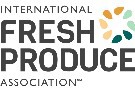In testimony and comments delivered to the U.S. Department of Agriculture's National Organics Standards Board (NOSB), members of the International Fresh Produce Association's Food Safety and Government Relations teams urged the agency to continue its use of objective, science-based decision-making as the NOSB considers proposed changes to the National List of Allowed and Prohibited Substances.
"We urge the NOSB to consider our recommendations to the National Organics Program with specific attention to the need for adequate tools for fresh produce growers, for objective scientific review, and with an understanding of the diverse needs for the many crops, growing regions, and production methods in the organic industry," said IFPA director of production and environment Sara Neagu-Reed.
 Sara Neagu-Reed.
Sara Neagu-Reed.
The association provided feedback to the NOSB Spring Agenda on the following:
- Residue testing for a global supply chain: IFPA urged that NOSB ensure pesticide residue certifiers are adequately trained in proper sampling protocols (including chain of custody to safeguard accuracy and reduce cross-contamination) and understand the optimal time to conduct testing.
- Climate-induced farming risk and crop insurance: IFPA called on the NOSB to level the playing field for producers, specifically improvements in quality factor considerations during loss adjustment, ensuring agents have expertise in organic markets for revenue protection, and appropriate length of time needed for in-field adjuster review specifically cited as focus areas for the agency.
- Improving support for organic transition proposal: IFPA shared its members' concerns over the adjusted gross income (AGI) limitation placed on various USDA programs, which often prohibits growers from participating in organic transition programs.
- Inert ingredients in pesticide products: IFPA cautioned against listing all inert ingredients individually on the National List as doing so would dramatically increase the number of substances subject to sunset review.
Other topics addressed in IFPA's comments were compost production for organic agriculture and 2026 Crop Sunset Reviews on many production inputs (hydrogen peroxide, ammonium soaps, horticultural oils, pheromones, ferric phosphate, potassium bicarbonate, and magnesium sulfate), as well as peracetic acid/peroxyacetic acid as an antimicrobial in wash water and for sanitization of produce handling tools and equipment.
With organics policy a key part of IFPA's advocacy agenda for 2024, Neagu-Reed will represent IFPA and its members' interests on these topics and more during the NOSB Spring Meeting scheduled for April 29-May 1 in Milwaukee, Wisconsin.
 For more information:
For more information:
Ashley Sempowski
International Fresh Produce Association
[email protected]
https://www.freshproduce.com/
